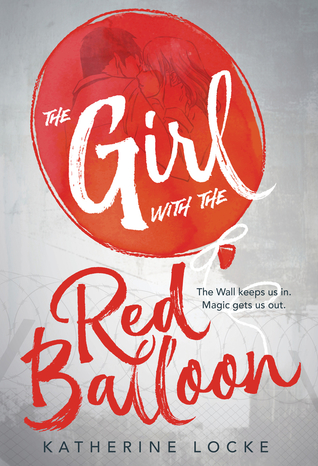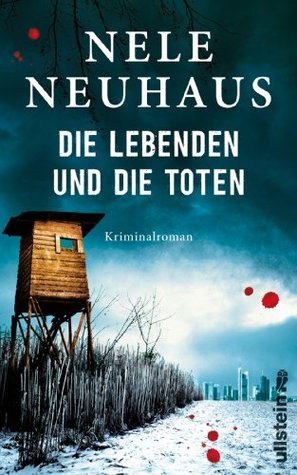Die rätselhaften Vorfahren der Inka ist ein leicht lesbares Buch über die Geschichte der Völker die in Peru (und im Andenraum generell) lebten, bevor die Inka ihr Reich zusammeneroberten, und natürlich bevor die Conquistadors auftauchten und Südamerikas Zivilisationen zerschlugen.
Es gibt erstaunlich wenige Bücher über lateinamerikanische Vorgeschichte (wobei "Vorgeschichte" eben als "Vorkolonialgeschichte" gelesen werden muss). Der Hauptgrund dafür ist, dass die Völker Lateinamerikas keine Schriftsysteme entwickelt hatten, bevor sie erobert wurden - zumindest keine, die bis heute entschlüsselt sind. (Die Khipus der Andenvölker und der Inka werden heutzutage als Schriftsystem vermutet, aber die Entschlüsselung ist noch nicht erreicht). Insofern ist dieses Buch wichtig: es macht es dem Laien zugänglich, einen Zweig der Menschheitsgeschichte zu betrachten, der nur sehr selten ausserhalb von Fachkreisen dargestellt wird.
Es gibt viel lobenswertes: das Buch zeigt früh eine Serie von Landkarten, die die Völkerkulturphasen und Standorte ubersichtlich darstellt. Dieser Überblick ist Gold wert - anderen Büchern fehlt er. Das Buch ist mit reichlich Bildern illustriert, und die machen es einfacher, dem Text zu folgen. Vor allem aber ist die Geschichtsdarstellung so objektiv wie möglich und auf relativ neuem Stand des Wissens. Hut ab.
Andererseits kann der Stil des Buches manchmal ein wenig nerven. Es ist immer leicht lesbar, neigt aber hin und wieder zum Grandiosen und Dramatischen. Anderenorts klingt der Autor etwas arrogant, als stehe er über der einen oder anderen Meinung, oder gar des einen oder anderen Völkerglaubens. Das funktioniert, sofern man mit dem Autor mitgrinst. Wenn man das nicht tut, oder wenn man etwas mehr wissen will über das was da in einem halben abwertigen Satz belächelt wird, dann steht man allein im Wald. Und der letzte Punkt, der mich ein wenig verstutzte, ist dass der Grossteil der Quellen aus deutschen Archäologen besteht. Zwar stimmt es, das deutsche Archäologen viel in Südamerika geleistet haben, aber ich konnte den Verdacht nicht loswerden, dass das Buch an Informationsreichtum eingebüsst hat, weil es deutsche Archäologen allen anderen als Quelle vorzieht.
Das Buch ist trotzdem sehr empfehlenswert für Laien und Leute die, wie ich, gerne eine Grundlage des Vorhandenen Wissens über Lateinamerikanische Zivilisationen und Protozivilisationen erlernen wollen.
Bewertung: 4/5
Es gibt erstaunlich wenige Bücher über lateinamerikanische Vorgeschichte (wobei "Vorgeschichte" eben als "Vorkolonialgeschichte" gelesen werden muss). Der Hauptgrund dafür ist, dass die Völker Lateinamerikas keine Schriftsysteme entwickelt hatten, bevor sie erobert wurden - zumindest keine, die bis heute entschlüsselt sind. (Die Khipus der Andenvölker und der Inka werden heutzutage als Schriftsystem vermutet, aber die Entschlüsselung ist noch nicht erreicht). Insofern ist dieses Buch wichtig: es macht es dem Laien zugänglich, einen Zweig der Menschheitsgeschichte zu betrachten, der nur sehr selten ausserhalb von Fachkreisen dargestellt wird.
Es gibt viel lobenswertes: das Buch zeigt früh eine Serie von Landkarten, die die Völkerkulturphasen und Standorte ubersichtlich darstellt. Dieser Überblick ist Gold wert - anderen Büchern fehlt er. Das Buch ist mit reichlich Bildern illustriert, und die machen es einfacher, dem Text zu folgen. Vor allem aber ist die Geschichtsdarstellung so objektiv wie möglich und auf relativ neuem Stand des Wissens. Hut ab.
Andererseits kann der Stil des Buches manchmal ein wenig nerven. Es ist immer leicht lesbar, neigt aber hin und wieder zum Grandiosen und Dramatischen. Anderenorts klingt der Autor etwas arrogant, als stehe er über der einen oder anderen Meinung, oder gar des einen oder anderen Völkerglaubens. Das funktioniert, sofern man mit dem Autor mitgrinst. Wenn man das nicht tut, oder wenn man etwas mehr wissen will über das was da in einem halben abwertigen Satz belächelt wird, dann steht man allein im Wald. Und der letzte Punkt, der mich ein wenig verstutzte, ist dass der Grossteil der Quellen aus deutschen Archäologen besteht. Zwar stimmt es, das deutsche Archäologen viel in Südamerika geleistet haben, aber ich konnte den Verdacht nicht loswerden, dass das Buch an Informationsreichtum eingebüsst hat, weil es deutsche Archäologen allen anderen als Quelle vorzieht.
Das Buch ist trotzdem sehr empfehlenswert für Laien und Leute die, wie ich, gerne eine Grundlage des Vorhandenen Wissens über Lateinamerikanische Zivilisationen und Protozivilisationen erlernen wollen.
Bewertung: 4/5








